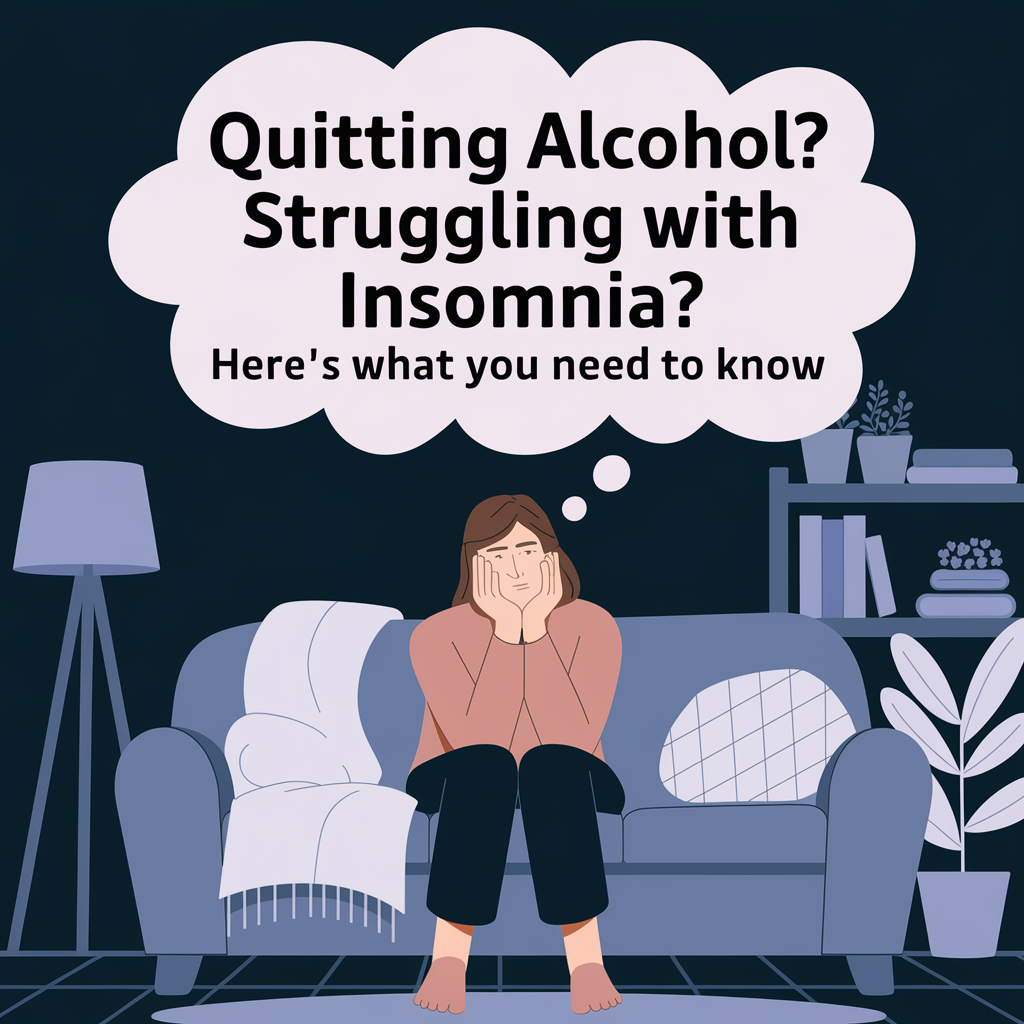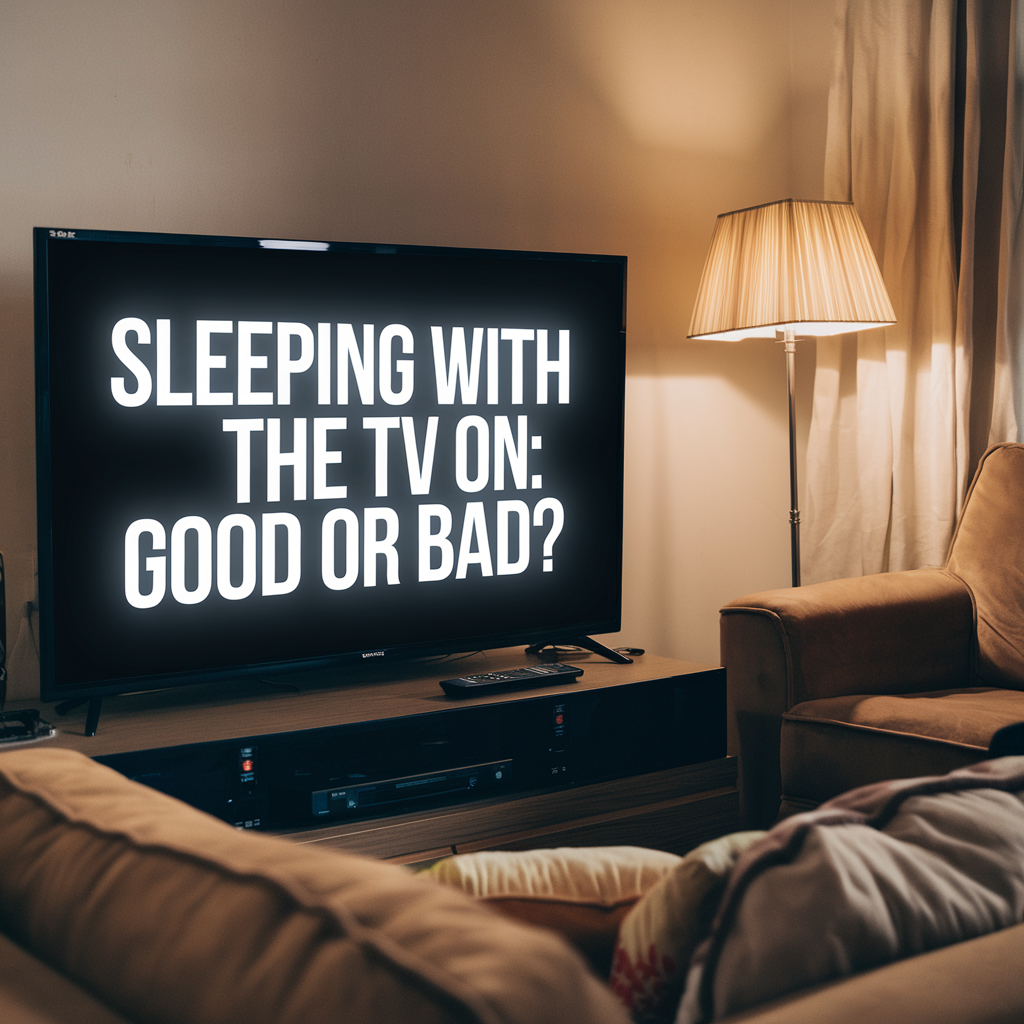
Is It Bad to Sleep with the TV On?
Many people rely on the background noise of a TV to fall asleep, whether it’s a favorite show, late-night news, or a calming documentary. But is it actually bad to sleep with the TV on? While it may seem harmless—or even helpful—research suggests that sleeping with the TV on can negatively impact sleep quality, brain function, and overall health.
Some people find TV noise comforting, while others experience restless sleep, frequent awakenings, and reduced deep sleep because of it. Understanding how TV affects your sleep can help you decide whether it’s a habit worth keeping—or breaking.
Next, we’ll explore the science behind how TV impacts your sleep cycle and whether it helps or harms your rest.
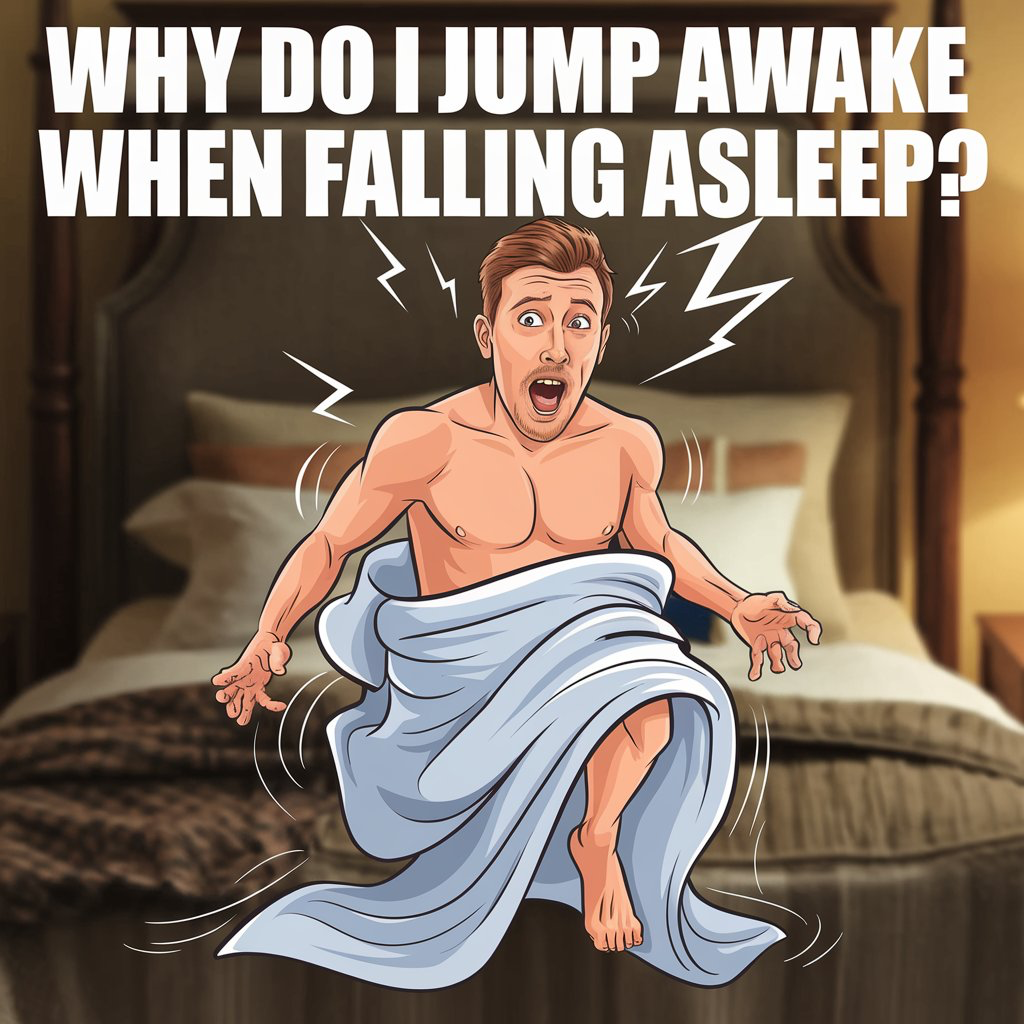
How Does Sleeping with the TV On Affect Your Sleep Cycle?
Your sleep cycle is a delicate process that moves through different stages, including light sleep, deep sleep, and REM sleep. Each stage plays a crucial role in restoring your body and brain. However, when the TV is on, it can interfere with this natural rhythm in several ways.
1. Blue Light Disrupts Melatonin Production
TV screens emit blue light, which tricks your brain into thinking it’s still daytime. This suppresses the production of melatonin, the hormone that signals to your body that it’s time to sleep. Studies show that exposure to blue light before bed can:
- Delay sleep onset, making it harder to fall asleep.
- Reduce deep sleep, leaving you feeling tired even after a full night in bed.
- Shorten REM sleep, which is essential for memory, learning, and mood regulation.
If you struggle with insomnia or trouble falling asleep, consider turning off the TV and trying these quick insomnia fixes instead.
2. TV Noise Can Disrupt Deep Sleep
Even if you don’t fully wake up, the background noise from a TV can prevent your brain from entering the deeper stages of sleep. Loud sound effects, sudden changes in volume, or even just dialogue can cause micro-awakenings, which reduce sleep quality.
3. Your Brain Stays Active While You Sleep
Your brain processes information even when you’re asleep. If the TV is on, your brain continues to respond to sounds and changing visuals, making it harder to fully rest. This can lead to:
- More fragmented sleep, meaning you wake up more often throughout the night.
- Increased stress levels, as your brain remains partially engaged instead of fully shutting down for rest.
If you often wake up feeling exhausted, it might be worth considering alternative sleep aids like white noise machines or relaxing bedtime routines.
Next, we’ll look at whether sleeping with the TV on is ever beneficial and who might actually benefit from it.

Can Sleeping with the TV On Ever Be Beneficial?
While sleeping with the TV on is generally discouraged, some people find it helps them fall asleep faster or feel more comfortable at night. In certain situations, background noise can have a calming effect and reduce nighttime anxiety.
1. White Noise Effect for Anxiety and Insomnia
For those who struggle with racing thoughts, anxiety, or insomnia, the TV may act as a form of white noise—a consistent sound that masks other disruptive noises. This can help:
- Reduce focus on stressful thoughts before bed.
- Drown out sudden noises (such as traffic or a snoring partner).
- Create a familiar, soothing environment.
However, if you rely on TV for background noise, it’s better to switch to a dedicated white noise machine or an app designed for sleep, as these won’t disrupt your sleep cycle like TV dialogue and screen light can.
2. Comfort for People Who Feel Lonely at Night
Some people find that the TV makes them feel less alone, especially if they live by themselves or struggle with nighttime anxiety. The sound of familiar voices or a favorite show can provide a sense of comfort, similar to having someone in the room.
3. Background Noise for Tinnitus Sufferers
People with tinnitus (ringing in the ears) often find it difficult to fall asleep in complete silence. A low-volume TV show or relaxing nature documentary might help mask the ringing and make it easier to drift off.
How to Use TV at Night Without Harming Sleep
If you prefer sleeping with the TV on, here are some ways to minimize its negative effects:
✔ Set a sleep timer – Most modern TVs have a timer that turns the screen off after a set period.
✔ Lower the brightness – Dim the screen as much as possible to reduce blue light exposure.
✔ Use subtitles and mute the volume – This allows you to have visual comfort without the disruptive sounds.
✔ Choose calming content – Avoid action movies or dramatic shows that might startle you awake.
If you rely on TV but suspect it’s affecting your sleep, you might benefit from trying alternative solutions. Read Why Do I Jerk Awake When Falling Asleep? Causes & How to Stop It to see if poor sleep habits are contributing to sleep disturbances.
Next, we’ll discuss the long-term effects of sleeping with the TV on and whether it could be harming your brain.

Can Sleeping with the TV On Ever Be Beneficial?
While sleeping with the TV on is generally discouraged, some people find it helps them fall asleep faster or feel more comfortable at night. In certain situations, background noise can have a calming effect and reduce nighttime anxiety.
1. White Noise Effect for Anxiety and Insomnia
For those who struggle with racing thoughts, anxiety, or insomnia, the TV may act as a form of white noise—a consistent sound that masks other disruptive noises. This can help:
- Reduce focus on stressful thoughts before bed.
- Drown out sudden noises (such as traffic or a snoring partner).
- Create a familiar, soothing environment.
However, if you rely on TV for background noise, it’s better to switch to a dedicated white noise machine or an app designed for sleep, as these won’t disrupt your sleep cycle like TV dialogue and screen light can.

2. Comfort for People Who Feel Lonely at Night
Some people find that the TV makes them feel less alone, especially if they live by themselves or struggle with nighttime anxiety. The sound of familiar voices or a favorite show can provide a sense of comfort, similar to having someone in the room. Black out curtains that I got on Amazon really helped me!
3. Background Noise for Tinnitus Sufferers
People with tinnitus (ringing in the ears) often find it difficult to fall asleep in complete silence. A low-volume TV show or relaxing nature documentary might help mask the ringing and make it easier to drift off.

How to Use TV at Night Without Harming Sleep
If you prefer sleeping with the TV on, here are some ways to minimize its negative effects:
✔ Set a sleep timer – Most modern TVs have a timer that turns the screen off after a set period.
✔ Lower the brightness – Dim the screen as much as possible to reduce blue light exposure.
✔ Use subtitles and mute the volume – This allows you to have visual comfort without the disruptive sounds.
✔ Choose calming content – Avoid action movies or dramatic shows that might startle you awake.
If you rely on TV but suspect it’s affecting your sleep, you might benefit from trying alternative solutions. Read Why Do I Jerk Awake When Falling Asleep? Causes & How to Stop It to see if poor sleep habits are contributing to sleep disturbances.
Next, we’ll discuss the long-term effects of sleeping with the TV on and whether it could be harming your brain.
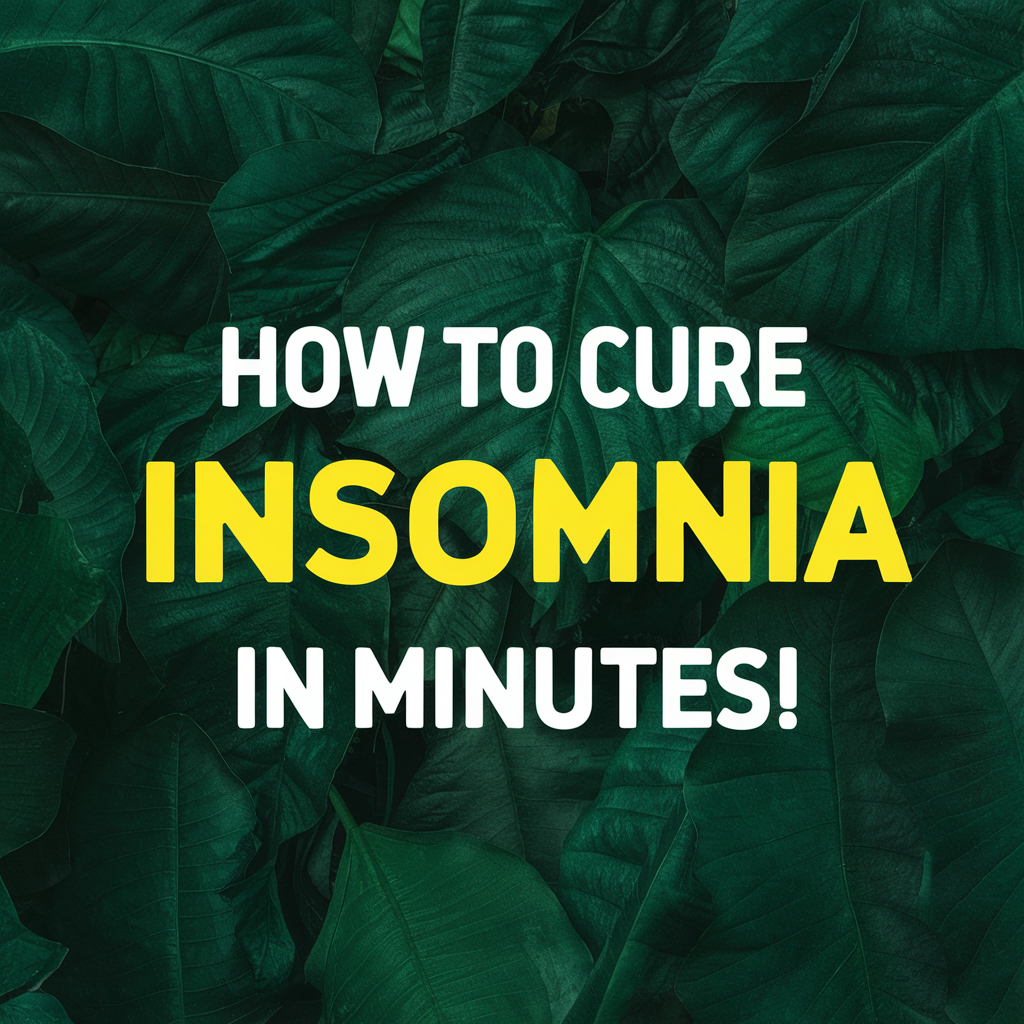
Does Sleeping with the TV On Harm Your Brain?
While an occasional night of falling asleep with the TV on might not cause serious harm, regularly exposing your brain to light and sound stimulation during sleep can have long-term effects on cognitive health, memory, and mood.
1. Disrupts Memory Consolidation
During sleep—especially deep sleep and REM sleep—your brain processes and stores information from the day. However, if your brain is constantly responding to TV sounds and light, it struggles to fully focus on memory consolidation. Over time, this can lead to:
- Difficulty retaining new information.
- Slower cognitive function.
- Increased forgetfulness or brain fog.
2. Increases Risk of Depression and Anxiety
Research suggests that exposure to artificial light at night (ALAN)—including from TVs—can interfere with the brain’s natural production of serotonin and melatonin, two key hormones that regulate mood. Long-term effects can include:
- Increased risk of depression due to disrupted sleep-wake cycles.
- Higher anxiety levels from chronic sleep disturbances.
- Mood swings and irritability from sleep deprivation.
3. Alters Circadian Rhythm and Sleep Quality
Your circadian rhythm is your body’s natural internal clock that regulates sleep and wakefulness. When exposed to TV light and noise throughout the night, your brain gets mixed signals, making it harder to maintain a healthy sleep schedule. This can lead to:
- Chronic sleep deprivation.
- Greater difficulty falling and staying asleep without external noise.
- Higher risk of developing insomnia over time.
If you frequently wake up feeling groggy, irritated, or mentally drained, your nighttime TV habit might be to blame. To improve sleep and restore your natural circadian rhythm, check out Say Goodnight to Insomnia and Wake Up Refreshed for expert-backed solutions.
Next, we’ll wrap up with final thoughts on whether you should keep or ditch your TV sleep habit.
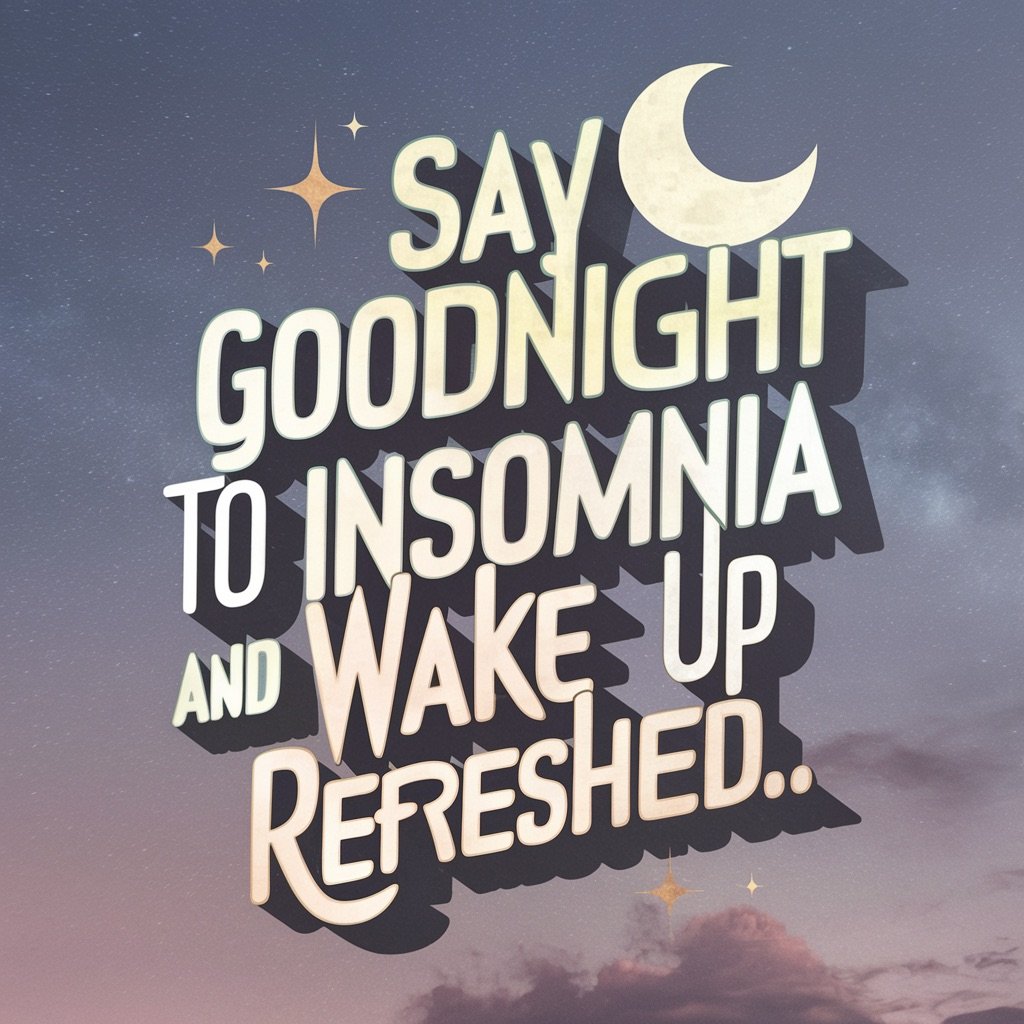
So…Should You Sleep with the TV On?
So, is it bad to sleep with the TV on? The answer depends on how it affects your sleep quality. While some people find comfort in the background noise, the downsides—like disrupted sleep cycles, impaired memory, and an increased risk of insomnia—often outweigh the benefits.
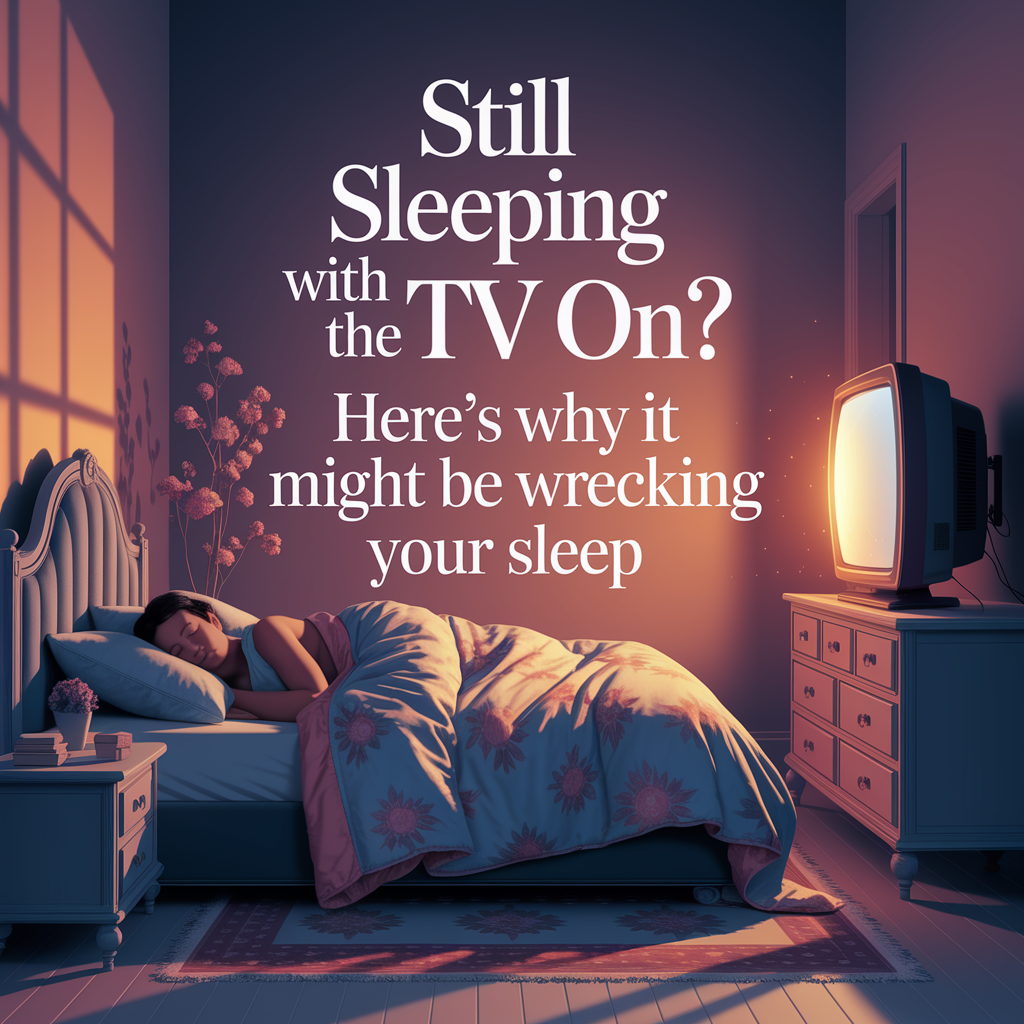
When to Turn the TV Off Before Bed
You should consider ditching your TV sleep habit if:
✔ You struggle to wake up feeling refreshed.
✔ You wake up multiple times per night.
✔ You experience brain fog, forgetfulness, or mood swings.
✔ You rely on TV every night to fall asleep and can’t sleep without it.
Healthier Alternatives for Better Sleep
If you like having background noise but want to protect your sleep, try:
- A white noise machine or sleep sounds app (ocean waves, rain sounds, or soft music).
- A bedtime podcast with a sleep timer.
- A guided sleep meditation to help relax your body and mind.
If poor sleep is affecting your health, improving your nighttime habits is key. Learn how to reset your sleep cycle and finally get deep, restful sleep with these expert sleep tips.
By making small adjustments—like turning off the TV or using a sleep-friendly alternative—you can create an environment that truly supports high-quality rest and long-term well-being.

As an Amazon Associate we earn from qualifying purchases through some links in our articles.

